However, according to Dr. Chu Thi Dung, University of Medicine and Pharmacy Hospital, Ho Chi Minh City - Branch 3, the cause of the 13 cm rectal prolapse is not due to the phone, but the habit of taking advantage of entertainment during toilet time, causing the rectum to suffer. This is a warning bell about rectal prolapse, which is gradually getting younger.
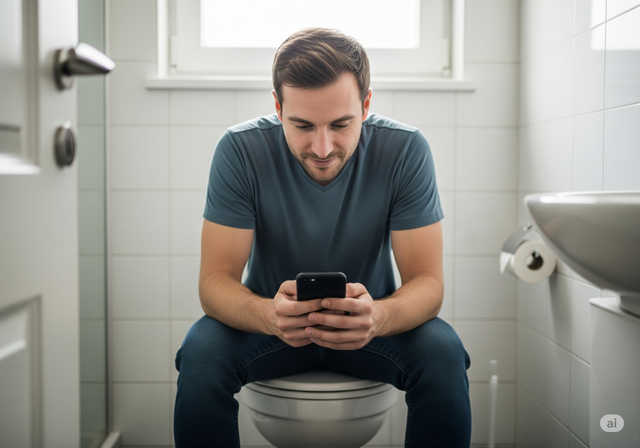
The habit of 'hugging' the phone in the toilet has become popular nowadays.
Illustration: AI
What is rectal prolapse?
Rectal prolapse is a condition in which part or all of the rectal wall is turned upside down and slides out of the anus. When prolapse occurs, the patient may see a red, soft, tube-shaped mass of tissue protruding after each bowel movement, sometimes having to be pushed back in by hand.
Depending on the severity, the disease is divided into:
- Mucosal prolapse: The innermost mucosal layer slides out.
- Total rectal prolapse: The entire rectal wall protrudes, sometimes several centimeters long or even over 10 centimeters.
Causes of rectal prolapse
Rectal prolapse occurs when prolonged intra-abdominal pressure increases, combined with weakening of the levator ani and pelvic floor muscles, and laxity that causes loss of function of the anal sphincter, causing the rectum to protrude.
Common factors:
- Straining due to prolonged constipation
- Chronic diarrhea, irritable bowel syndrome
- Lift heavy objects regularly
- Women who have given birth many times
- Elderly due to aging pelvic floor muscles
- Pelvic nerve and spinal cord injury

Sitting for long periods of time is also one of the causes leading to the risk of rectal prolapse.
Photo: AI
Sitting for a long time on the toilet because of the habit of using the phone
Dr. Dung said that many young people have the habit of bringing their phones to the toilet, going to the toilet and surfing Facebook and TikTok. In fact, it is not the phone that causes the prolapse, but it is an excuse for you to sit for a long time. The real culprit is the sitting position, straining for a long time, tensing the abdomen, increasing abdominal pressure; The rectal-anal angle is continuously compressed, causing the rectum to be pushed down; The pelvic floor muscles are tired and weak, leading to dilation and prolapse.
Who is susceptible to rectal prolapse?
According to Dr. Dung, the following groups of people are at high risk of rectal prolapse:
- Elderly people.
- Women give birth many times.
- People with constipation and chronic diarrhea.
- People with neurological disease, pelvic floor muscle weakness.
But now, the disease is rapidly rejuvenating due to alarming habits such as: Sitting on the toilet for a long time because of using the phone; Holding in bowel movements, straining; Not eating enough vegetables - drinking little water; Being lazy to exercise, sitting for a long time - standing for a long time; Using the wrong gym technique, lifting heavy weights...
Signs of rectal prolapse
Dr. Dung said there are many signs that help a person recognize the risk of rectal prolapse, including:
- A feeling of discomfort or obstruction in the anus, especially after defecation.
- There is a mass protruding from the anus, red, soft, must be pushed back in by hand.
- Incomplete defecation, need to strain even after finishing.
- Mucus discharge, burning pain in the anal area.
>>> In the next article, Dr. Dung will provide readers with information on how to treat and prevent the risk of rectal prolapse.
Source: https://thanhnien.vn/sa-13-cm-ruot-trong-luc-dung-dien-thoai-di-ve-sinh-bac-si-noi-gi-18525062922402278.htm




















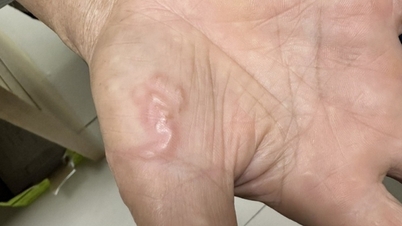
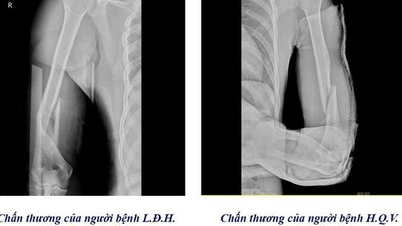


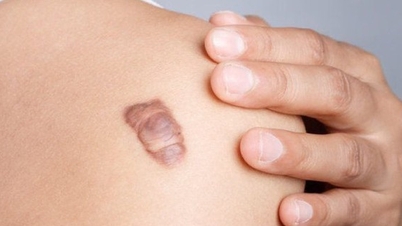


































































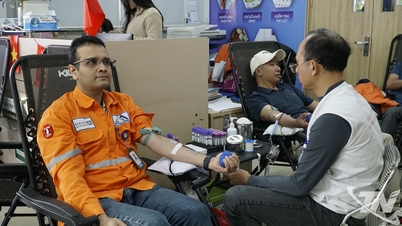

















Comment (0)